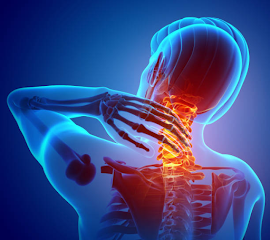How to Prevent a Heart Attack
Heart attacks can be dangerous and painful, so it’s important to know the warning signs to look out for, and to get help as soon as possible. The following eight signs indicate that you or someone around you may be experiencing a heart attack. Remember, every second counts during an emergency situation!
1) Chest Pain
The most common symptom is chest pain or discomfort, which often feels like pressure, squeezing, fullness or pain. This pain can radiate to your arms, neck, or shoulders. You might also feel it in your back or stomach. The main culprit in a heart attack is usually a lack of blood flow to your heart muscle and/or its inability to pump effectively due to clogged arteries. Either way, chest pain is considered an emergency—don’t wait until it goes away before seeking medical attention!
2) Pain in the 2) Back or NeckSection
If you have pain in your back or neck, it may be caused by muscle spasms. Your doctor may prescribe medications or recommend lifestyle changes like physical therapy to help alleviate these symptoms. But if you notice pain in your abdomen and chest accompanied by vomiting, sweating, dizziness, or palpitations, get to an emergency room as soon as possible because these are signs of a heart attack. Your heart is made up of four chambers with thick muscles that surround them and supply blood to your body
3) Shortness of Breath
If you notice that you’re short of breath, particularly during light activity such as walking upstairs or climbing in and out of bed, it may be a sign that you’re having a heart attack. While shortness of breath can also indicate other medical conditions, if it occurs suddenly and is accompanied by other symptoms (discussed below), it could mean that you’re experiencing a heart attack. Contact your doctor right away if you experience shortness of breath along with any chest pain or dizziness.
4) Indigestion
A heart attack starts with an interruption in blood flow to your heart muscle. The pain from indigestion is usually felt in your chest, and it’s commonly mistaken for heartburn. The most common causes are overeating or eating too quickly, which causes gas and bloating that restricts blood flow to your stomach.
5) Fatigue
Fatigue can be one of your body’s warning signs. If you feel tired or lack energy, get yourself checked out immediately. This is especially important if you’re in an otherwise healthy state and experience fatigue at a time when you would normally have energy and stamina.
6) Lightheadedness
One of your first symptoms might be feeling lightheaded like you’re going to pass out. This often happens when plaque causes clots to form in your arteries, which block blood flow and create oxygen shortages in various parts of your body. If you think you’re having a heart attack or just want peace of mind, don’t wait—call 911 right away.
7) Palpitations
Palpitations are one of those vague symptoms that could mean any number of things. Palpitations happen when your heart beats too fast, too slow, or irregularly. If you’re worried you’re experiencing palpitations—especially if they come along with chest pain and shortness of breath—talk to your doctor right away.
For most people, heart attacks come as a surprise—but there are steps you can take to reduce your risk of having one and increase your chances of surviving if you have one. By eating the right foods, getting enough exercise, and taking time to relax, you can drastically improve your odds of beating heart disease and living an overall healthier life. Here’s how to prevent a heart attack in three easy steps.
Learn About What Triggers Your Stress
The more you know about what triggers your stress, and why you get stressed out over certain things, the easier it will be for you to calm down when those situations arise. Sometimes we don’t even know that something is causing us stress. When stressful situations happen, stop and take a deep breath, then try asking yourself if anything was leading up to it that might have contributed. And don’t forget: Stress is not always bad—it can also be motivating and exciting!
Identify the Signs of an Oncoming Heart Attack
Chest pain, shortness of breath, nausea. If you’re experiencing any of these symptoms, it’s time to head to your local ER.
Know What to Do When You Feel Symptoms Coming On
One of the most important steps you can take to avoid a heart attack is being aware that it’s coming on. If you feel symptoms, don’t brush them off as indigestion or stress—get help right away. ask for an ambulance, then follow these tips: When you get outside, stand near other people. Studies show that patients who are outdoors when their heart attack hits are more likely to survive than those who are indoors. Don’t have time?
.jpg)
.jpg)






.jpg)
No comments:
Post a Comment